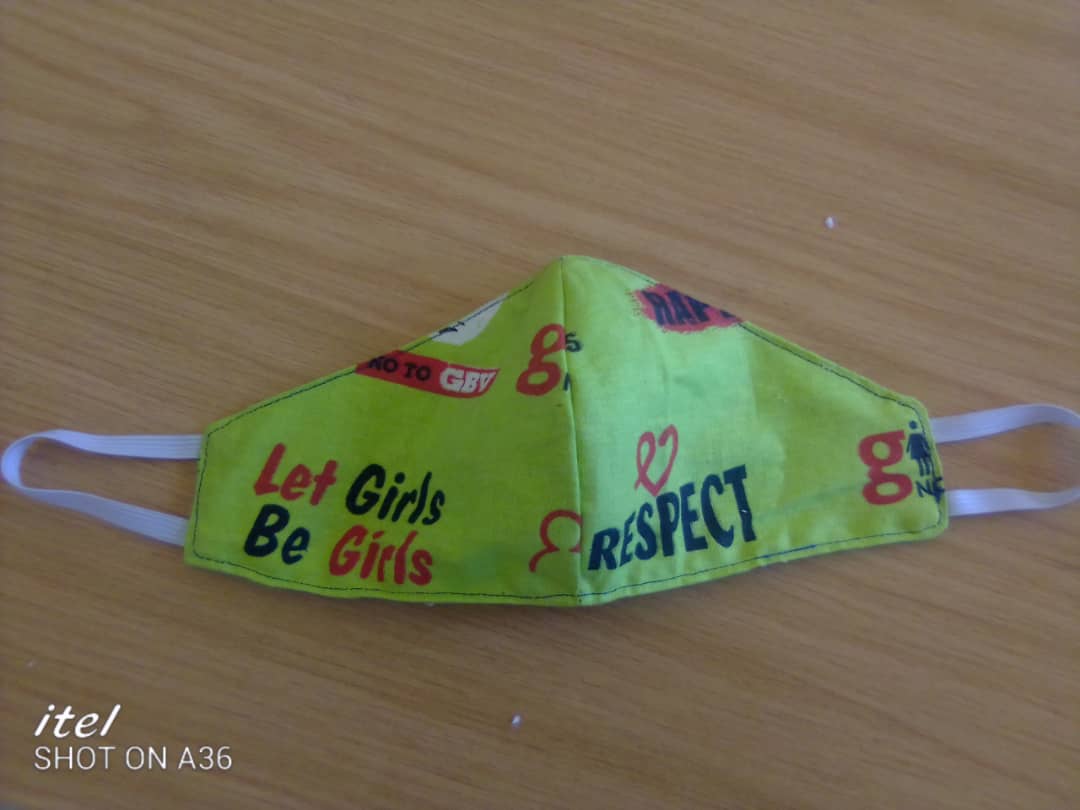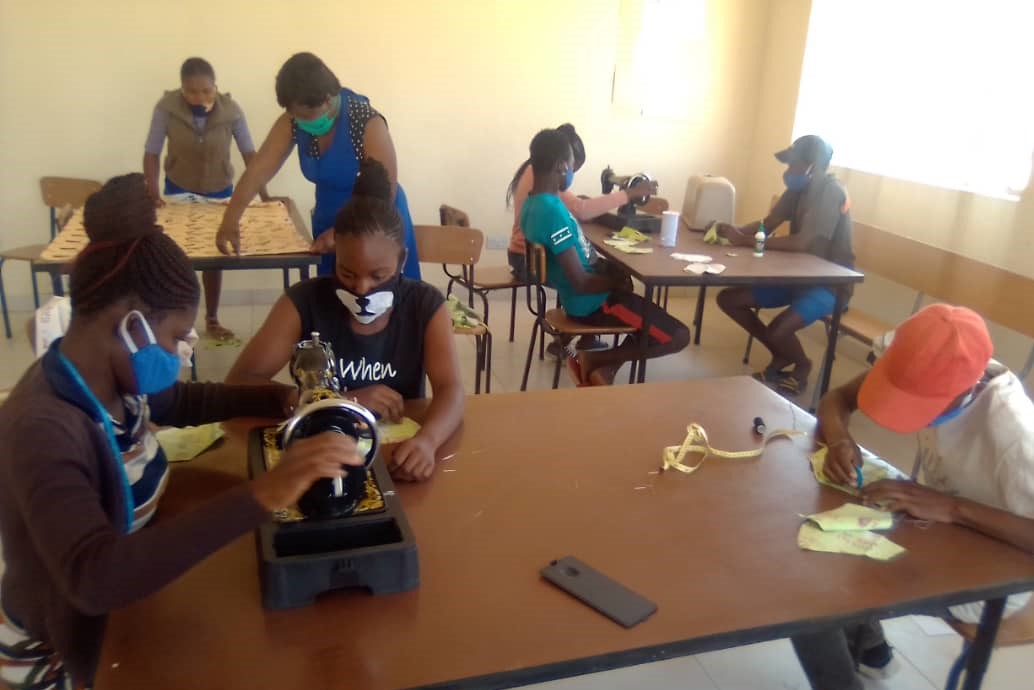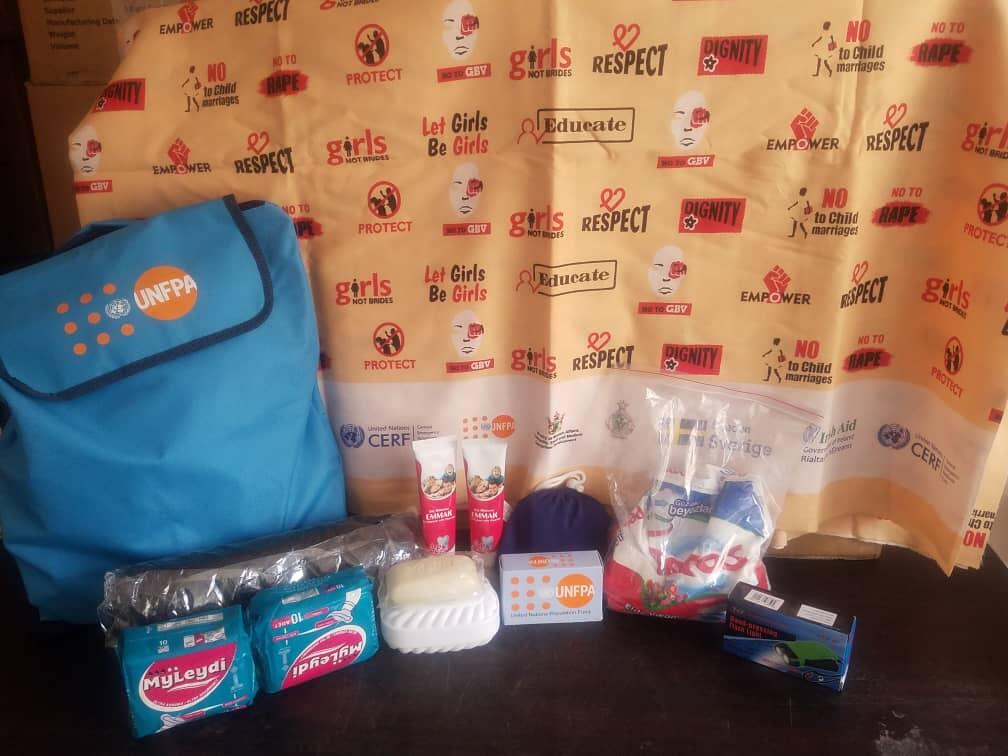Harare, Zimbabwe – 30 September 2020 - When the obligation to wear masks in all public spaces was issued – as much as it seemed a reasonable thing to protect all from COVID 19 spread – this had a further impact on GBV. Those who were not able to purchase or get a mask were suddenly at a further increased exposure to difficulties at police manned roadblocks, as well as of stigma, in their own communities. Not owning a mask also impacted on the access to basic services, including GBV services, and further contributed to de-prioritization of services.
“All we had were pieces of cloths and we would use these as masks, we could only do this when someone visited our homes,” says Eunice Mbele, GBV survivor from Sinamagonde, Binga district in Matebeleland North. “It was difficult to leave the house because we did not have the correct masks – leaving the house and going into public places would have been in violation of the law but it would have placed us at risk of contracting the COVID19 virus. I am glad that the safe space decided to give us masks.”
UNFPA is supporting implementing partners to produce face masks for distribution to survivors at safe spaces and safe shelters. As part of the rehabilitation process at the safe facilities, survivors are the ones who are sewing the masks, also as a COVID19 awareness mechanism.
“I remember getting worried of the potential huge impact of what the mask wearing rule could possibly have, on the most vulnerable women and girls,” recalls the UNFPA Technical specialist for GBV in emergencies, Verena Bruno. “And then it clicked! We had some zambias (local multi-purpose wrapper) stockpiled – we usually add the zambias to the basic dignity kits – to ensure privacy and dignity at bathing facilities in shared shelters that we could use to make masks! The greatest need was for masks. The Zambia is a wrap cloth that mostly women in rural areas wear when they are doing their daily chores. It can also be used also to strap babies on the back.”

To cater for this new need various partners were engaged start sewing the masks. Production began at GBV shelters where they already had ongoing sewing projects, as well as at safe spaces in the targeted drought districts, and colleges and youth centres projects, in rural and peri-urban areas. The whole process was guided by the WHO standards for cloth masks, so we would ensure no recipient will be put at risk.
Musasa’s Programmes Officer Sharon Matingwina says as simple as the project may seem, the masks production project has resulted in the reduction of GBV risks and provided survivors an opportunity to contribute to the fight against COVID-19. She says survivors will leave the safe shelter facilities with new sewing skills that they can use to earn a living when they return to their communities. They can also sew masks for their family members.

The masks are being distributed to those in need in the target communities, including women and girls who arrive to the shelters without one, community members, the BCFs who continue conducting GBV surveillance and the peer educators in colleges
In the World Vision run safe spaces and shelters survivors were each sewing their own masks while extra masks being distributed to survivors with disabilities who are unable to produce their own mask, explained Sifiso Ndlovu, the Programme Coordinator for the organisation.
Over 2,000 masks have been produced with the “re-invented” fabric material, with a plan to provide partners with more material, given the positive outcome of the initiative. The fabric which was utilized to make the masks also was originally designed with GBV risk mitigation messages – a very straightforward way to also use the mask as an awareness raising tool at community level – two birds with one stone!
It is through the support of the Governments of the Sweden and Ireland under the GBV365 National Programme that we continue to make a difference in the lives of many communities. The GBV 365 programme was launched in 2017 to support efforts to end Gender Based Violence, end child marriages and promote gender equality.
- By Verena Bruno, UNFPA Zimbabwe Technical specialist for GBV in emergencies


